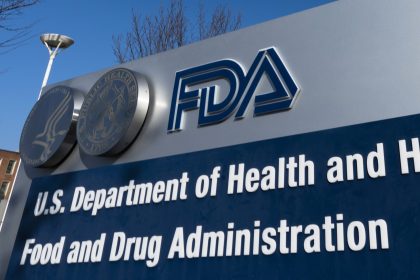Response to Misinformation Piece on Comprehensive Harm Reduction Efforts
COMMENTARY

In a March opinion piece in The Hill, Dr. Joanna Cohen contends that the concept of tobacco harm reduction is a ruse by the tobacco industry, a cover for its “greed” to seek new customers and profits.
This contention is based on two premises, that the industry has a history of corporate malfeasance and that it sells products (cigarettes) that are deadly. These two premises are true but are insufficient to dismiss the concept of tobacco harm reduction.
I offer a different perspective.
To paint the tobacco industry as unmitigated evil is simply not correct. While the history of the industry is dire, over the last two decades the major players in the industry have sought to mitigate past wrongs and bring themselves into a regulated environment that will prevent a repeat of past malfeasance.
As a result, industry has paid billions of dollars in compensation and has agreed to stringent marketing restrictions that limit promotions solely to adults in addition to regulation of their products.
In recent years, the industry not only supported the enactment of the Tobacco Control Act but also supported changing the national age of sale for tobacco products to 21.
I saw this play out in my over 20-year career working against industry. I then decided to join Altria because I saw a great opportunity for improving the lives of smokers, including many of my relatives, if the market for nicotine could be shifted from cigarettes to far less dangerous alternatives.
I therefore concluded that working with a regulated industry to promote policies around this transition was a path that was far more likely to save lives.
It is true that a cigarette is a dangerous product that is addictive and causes disease and early death. The industry has long acknowledged this fact. It is also a legal product for which there is significant demand. Under those conditions, simply eliminating established corporate entities will not result in people not smoking. It will simply shift the source of supply.
History shows us that all efforts at prohibition are doomed to failure.
This is not only true for alcohol, but for countries that have attempted to prohibit smoking. Efforts in Bhutan and South Africa were colossal failures that shifted supply to criminal enterprises and smugglers. Both countries abandoned their efforts. In Australia, where e-cigarettes are banned as commercial products, criminal enterprises have taken over and legitimate tobacconists have been subjected to fire-bombings. The effort has had little to no impact on adult and youth vaping rates.
Additionally, the current regulatory regime in the United States encourages the continued sale and marketing of cigarettes. While the Tobacco Control Act contemplates the authorization of vastly less hazardous nicotine products compared to cigarettes, the Food and Drug Administration has authorized hardly any such products.
In the meantime, products such as e-cigarettes have shifted to illicit sources such as Chinese imports, and U.S. companies that comply with the law have been shut out of competing in that space by the intransigence of the FDA.
While large industry has been trapped in the cigarette space, the new illicit industry is impossible to regulate due to its transient nature and, as a result, is the overwhelming source for e-cigarettes used by young people.
Lastly, I know that a significant number of adult smokers will switch from cigarettes to less harmful nicotine delivery products if such products are in the market and accompanied by true information regarding relative risk.
This is true regardless of one’s view of industry.
In Sweden, where low toxicity oral nicotine products are freely available, smoking rates have drastically declined along with smoking related death and disease.
We are seeing similar conversions in Japan, England and New Zealand. The well-respected Cochrane Review has found e-cigarettes are a more effective method for quitting smoking than standard interventions such as nicotine patches and lozenges. In the United States, consumers have been denied such information by government authorities, and have not been provided with sufficient regulated alternatives that will be consistent in design and ingredients.
Painting this issue as a struggle of good versus evil with no room for shades of gray and reasonable tradeoffs, while perhaps emotionally satisfying, is not beneficial to public health.
While some may reasonably wish that nicotine did not exist and that people did not want it, that simply isn’t the reality. Nicotine has been around for thousands of years, and over a billion people smoke worldwide. No amount of coercive policy is going to extinguish that demand.
Eliminating the incumbent tobacco industry will simply hand the market to new actors who will be acting outside the law with no incentive to follow any restrictions. Moreover, those enterprises will not pay taxes or be available to pay liability claims resulting from the use of their products in the event they cause harm.
For those who wish to eliminate a regulated and publicly accountable industry, I ask what is your realistic alternative?
The tobacco industry’s legacy of inflicting misery, death and disease is exactly the reason for the current inability of some to ever see a well-regulated nicotine industry as useful to improving lives, but inflicting such costs due to feelings of altruism instead of profit motive does not make them any less miserable for those that suffer as a result.
Dave Dobbins is the former chief operating officer of the American Legacy Foundation / Truth Initiative. He now works with Altria promoting tobacco harm reduction. He can be reached on LinkedIn.

























